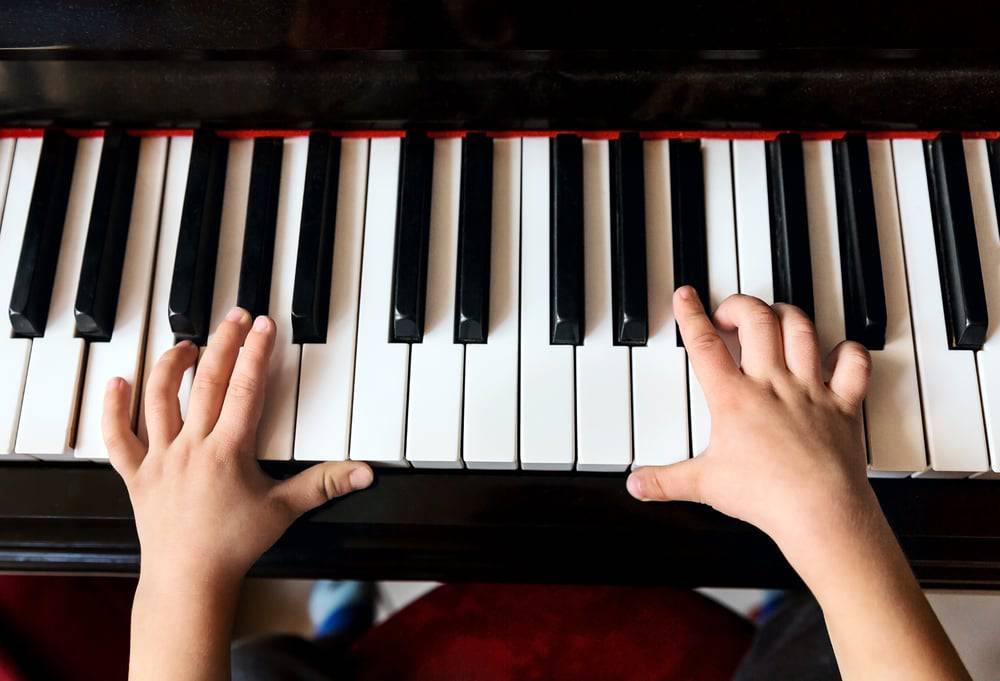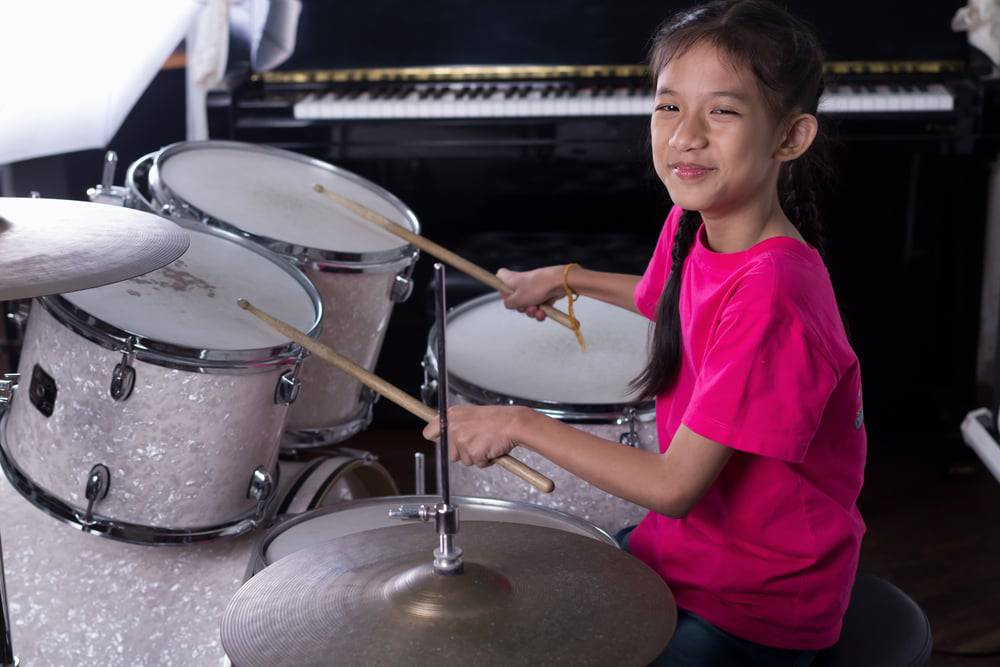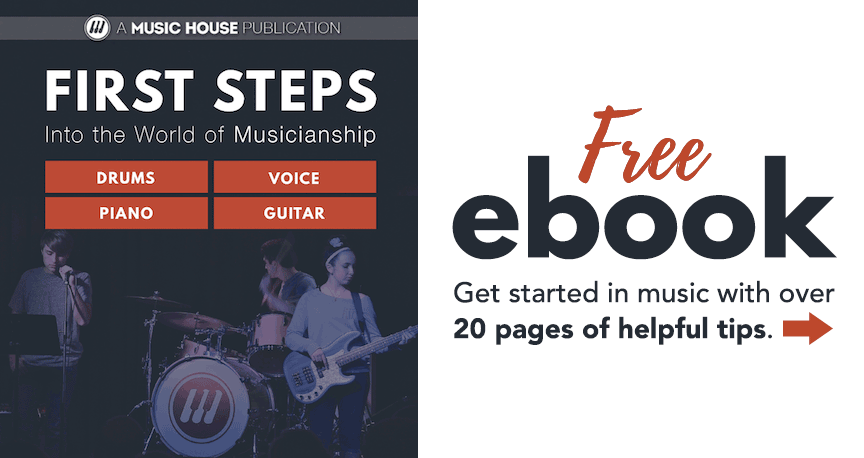Health Benefits of Private Music Lessons
Free Music Week is rapidly approaching at Music House School. Many health benefits come with learning an instrument and taking private music lessons. Self-discipline, improving brain function, and the sheer joy of music, to name only a few. The research also shows that adults can reap the benefits of playing music as well. No matter what age you are, you can absorb the physical and mental benefits of playing an instrument. And the best part is that these benefits apply to any kind of instrument! It's the act of playing music itself that will dramatically improve your overall health.

Physical Benefits of Playing an Instrument
Stronger Lungs - Usually, when we breathe, we take shallow breaths. However, activities, like singing or playing wind instruments, require deeper breathing using the diaphragm. These activities will improve your lungs and respiratory system. In fact, playing the harmonica can even help with pulmonary disease!
Prevent Sickness - Learning how to play an instrument will likely inspire you to create your own music. Creating music will help you to enhance your immunological response, which allows you to better fight off viruses.
Reduce Stress Levels - Playing an instrument will shift your focus and energy towards a positive activity, which can help reduce your stress. Consequently, your blood pressure and heart rate will go down to healthier levels as well. Playing music is better than just listening to it, as playing it is always a more immersive experience.
Improved Hearing - Learning an instrument will improve your hearing because you'll learn how to isolate different sounds when playing your instrument. Studies have shown that musicians are better at picking out specific sounds in noisy environments.
Improved Physique - Playing any instrument can help lead you to more physical activity. No matter what instrument you play, whether it's the piano, a wind instrument, or a guitar, you'll be using your arm or back muscles to do it. Drums even include cardio!
Prevent Neck and Back Pain - A decent music teacher should be correcting your posture during your music lessons. An added benefit of this is that you'll learn how to maintain a good posture even outside the times of when you play an instrument. That will help greatly in reducing neck and back pain.
Mental Benefits of Playing an Instrument
Improved Memory and Mental Fitness - Playing an instrument is like giving every part of your brain a workout. It will improve your mental acuity and memory. New scientific evidence even suggests that playing music can help a stroke patient's brain recovery and slow down the process of dementia and Alzheimers. Also, if music lessons are taken in childhood, then the cognitive impact can last a lifetime. Studies of people who have played musical instruments all their lives show that they have better cognitive performance.
Improved Coordination - Using your fingers hands and feet rhythmically for extended periods of time will naturally improve your coordination. It's challenging enough to do this and play the correct tones even for people who have very good coordination. Over time playing an instrument will improve your motor skills, going beyond the hand-eye. For example, children who learn to play the violin will have better motor skills.
Improved Willpower - Learning an instrument takes practice, yes, but this also means that you'll naturally improve your time management skills along the way. Fitting music practice into your business schedule will make you better at time management and organization skills. Maintaining consistency and a regular routine will also improve your willpower.
Become a Better Reader - Learning an instrument also means learning how to read music, and this will help improve your ability to process information. Reading and learning new things from other sources will become easier as a result.
Become a Better Listener - Not only will your hearing become better, but so too will your listening skills. Whether you're practicing alone or taking private music lessons, you'll have to learn how to listen for tuning and timing. You'll become a better listener in all aspects of life.
Improved Focusing Skills - To learn an instrument, you must learn how to focus — learning how to play an instrument forces you to utilize all the parts of your bain involving concentration, which will improve your overall ability to focus as well. That is why learning an instrument is recommended for those with Attention Deficit Disorder.
Better Math Skills - To learn music, you must learn patterns, which is intrinsically tied to mathematics. What's more, when you learn about the way that music is broken up by measures and beats, and how they're broken up, your math skills will improve automatically.

Emotional Benefits of Playing an Instrument
Express Yourself - You can express yourself through music whether it's your own music or somebody else's. You can also express creativity by choosing your own genre and style.
Therapeutic - Learning to play an instrument can allow you to "shed" negative emotions such as stress, depression, and insomnia. By playing your instrument, you can get through tough situations and healthily distract yourself from the stresses of daily life.
Accomplishment - There are few things comparable to that of mastering your favorite song! Setting music goals, working to accomplish them, and finally reaching them will give you a great feeling of achievement. Also, you'll feel more confident in all other areas of your life as well. Children who have trouble expressing themselves will become more confident and emotionally expressive.
Friendship - Music is an excellent way of meeting new people and making new friends. Learning how to play an instrument promotes socialization naturally. If you play in a choir, orchestra, or band, then there are ample opportunities to create new friendships. Children can work together with their peers to create music and learn the benefits of working together towards a common goal. They learn the skills of planning, collaboration, and coordination, and discipline naturally. You can also use music as an icebreaker when meeting strangers.
If you’re looking for private music lessons in Kansas City, then Music School House is here for you. Contact us today for more information!

